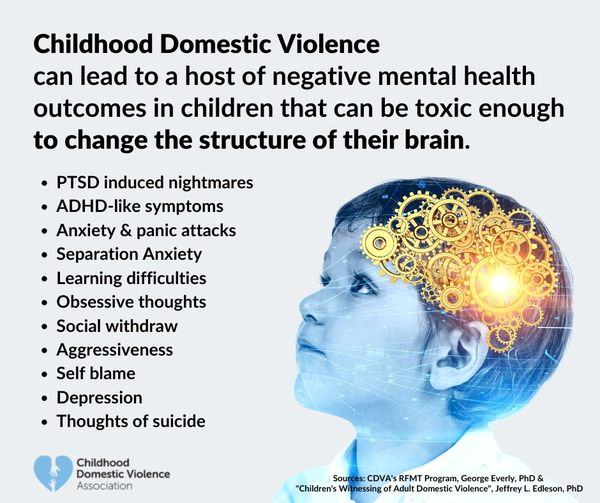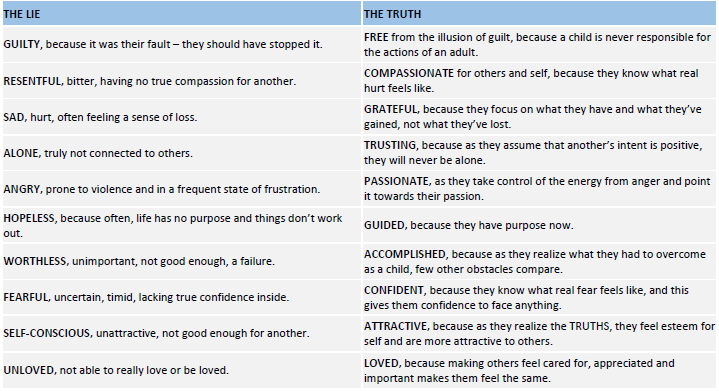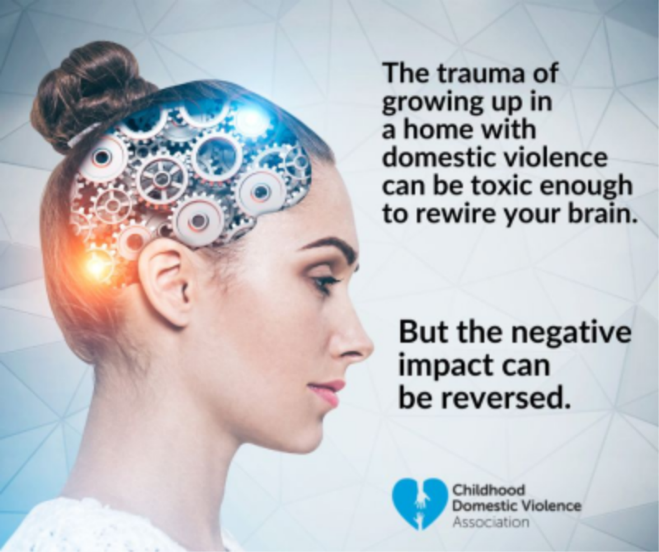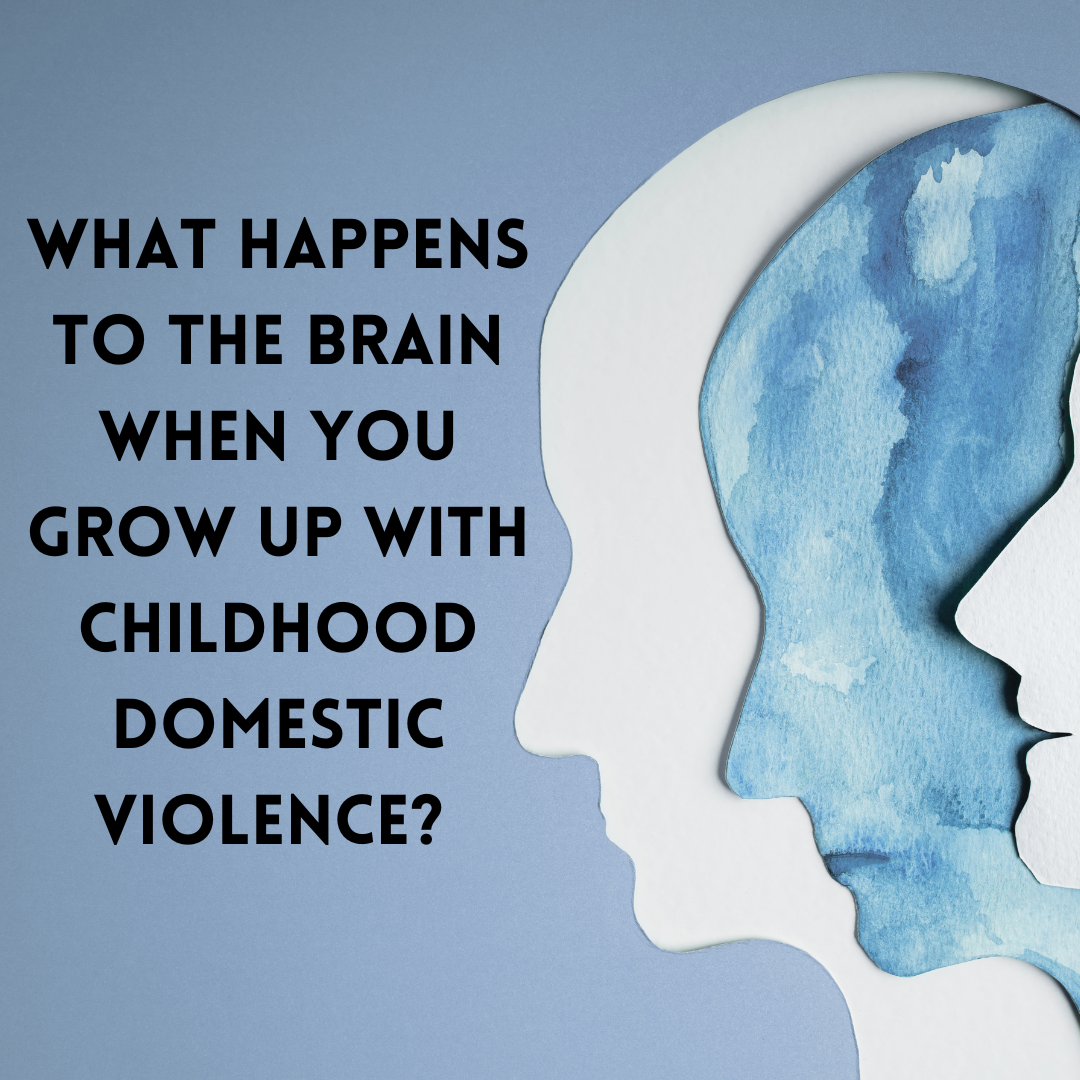When you grow up living with childhood domestic violence (CDV), the experience can negatively impact key areas of your life, including your brain.
This year for World Mental Health Day, we look at the relationship between childhood trauma and how the brain’s development is negatively impacted, particularly, in relation to the major childhood adversity of CDV.
According to UNICEF’s 2010 report, exposure to violence in the first years of childhood can deprive children of as much as 10% of their potential intelligence. This in turn can cause physical, emotional, learning, and behavioral issues in formative years. The impact continues to negatively affect these children into adolescence and beyond.
To understand how CDV impacts a person, it is important to learn how the brain is the core of where all these impacts stem from. CDV will often encode a negative belief system. Growing up with domestic violence can teach people to believe things about themselves and the world that are not true.
These LIES, if unchallenged, can last into adulthood and negatively impact key areas of their life. These negative beliefs can hold one back in life and keep them from reaching their potential.
Growing up with domestic violence rewires the brain
What does it mean for the brain to be rewired? Pioneering psychiatrist and researcher Daniel Siegel said many years ago:
“The mind develops as the brain responds to ongoing experience…The pattern of firing of neurons is what gives rise to attention, emotion, and memory.”
| Typically for children, nurturing elements are what fuse into a child’s brain through memory and experience. When a child is living in a home with violence where caregivers cannot support the child’s development, this lack of nurturing is apparent. Instead, their brains are filled with fear, hyper-vigilance and unresolved emotions. |  |
|---|
These results are instead what wires or fuses together. This child may also face greater sadness, guilt, shame and be incapable of building trust to maintain much needed healthy relationships in life. This outcome can also be called toxic stress – which occurs when a child lives with prolonged adversity, such as CDV. Without the nurturing required to grow with a healthy mind and body, the toxic stress levels disrupt brain architecture. This impacts the entire body and all its systems.
An easier way to understand the neuropsychology of CDV is to know the TRUTHS and LIES of CDV
CDV negatively wires a developing brain – it encodes a series of negative beliefs (LIES) early in life, that if unchecked, can last well into adulthood, with significant repercussions in one or all of the key areas a person’s life: physical health, mental health, behavior, and relationships.
These negative beliefs that come from childhood adversities faced are very different from those faced in adulthood. As a child you are at a more helpless and vulnerable point in your life – you depend on and believe that those adults you live with are meant to and want to take care of you.
If a child grows up with domestic violence, the physical and emotional need for nurturing may not exist, leading to a false belief system. The truths that exist for children not growing up with CDV do not apply to this child living with it. The lies will continue to shape their adulthood and continue to impact all 4 key areas of life.
BUT, for every LIE there is a corresponding TRUTH. Take a look at these truths of CDV below:

The brain CAN unlearn what was learned and learn anew
By showing a child the corresponding truths of CDV, you can help to change the path for this child, whose brain is still developing- the ability to change the patterns of thought and belief can be achieved. Adults may discover that the one to help them is themselves, at least in the beginning of self-discovery and will then realize they may find additional help beyond themselves.
But the brain does need triggers to unlearn what was learned in any stage of life. What are these triggers? They may seem simple, but they are profound and can shift not only individual change, but societal change in understanding how CDV can impact a life.
Awareness, Understanding and Sharing are key
There is that expression awareness is curative. The greatest means of change in the impact of CDV is awareness. There are connections that society has to make– that professionals and caring adults have to connect. They have to become aware that the multitude of adults out there need to validate their experience in childhood. They need to know that childhood domestic violence affects their life still.
And the first question to start the awareness is, for yourself, or someone else, is “did you grow up living with domestic violence?”
 |
“They will not reach their full potential… unless they unlearn what they learned in childhood” -Dr. David Sousa, expert, author of How the Brain Learns |
Sharing is also important. This can be sharing knowledge, be it spreading awareness. It can be sharing your story in a safe environment such as here at CDVA. This will help others make the connections they seek to understand their own pain and to help them find the source of that pain. What matters is that children and adults not feel alone in their experience. It is important to make others find the truths either with your help or on their own.
Children need help unlearning what they have learned
For a child, unlearning what they have learned in their life of CDV is harder for them. They are less aware and need help rewiring their brain. The trigger for them must be a caring adult. We at CDVA call this THE ONE.
Expose them to the truths and reverse the ingrained lies they think they have to live with. You can help transform these children’s lives. They will have lives filled with greater potential of happiness and healthiness. Take our free program called Change A Life. One hour of your time may change the life of a child living with domestic violence.
The path to healing is a complex road for individuals and for society. But it has to start with prevention. Prevention is very possible with greater awareness of CDV. By changing the life of one, you may be forging change for generations to come within a family. The impact is greater than you may realize.
By learning more about how CDV impacts the brain, multiple issues in society of individual’s suffering can be tackled. Expose the LIES and discover the TRUTHS. Then meaningful change can happen for millions of people, helping them live their lives with stronger mental health and well-being. Growing up with CDV does not have to lead to a life less fulfilled.

